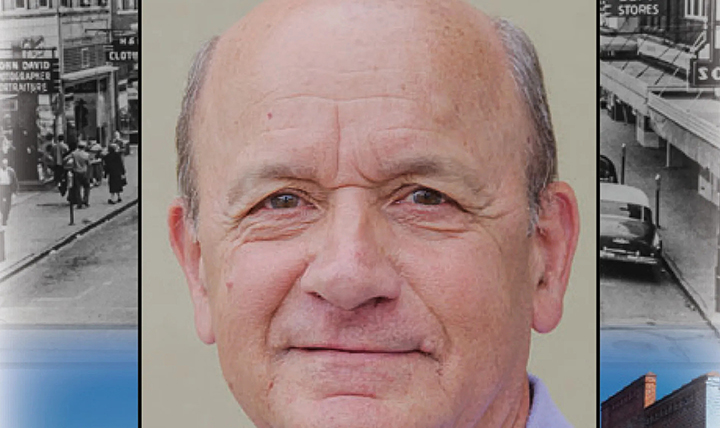Welcome!

Operator, could you help me place this call?
I once talked on my neighbor’s bedroom telephone while she was trying to sleep and her husband was waiting impatiently for me to finish.
It was fairly late at night when John knocked on the door of our duplex. “You have a phone call,” he growled, standing in his PJs. I followed him into their apartment, down the hall into their private quarters.
I picked up the receiver of their heavy black Western Electric rotary dial, said “Hello” and was greeted by an old friend. I don’t remember the context of our conversation, just that I made sure to end the dialogue as soon as possible.
I muttered a hurried “Thank you” as I rushed back to the safety of my own abode.
This was in the 1970s, known by the youth of today as those dark times when the latest technology was the 8-track. Back then — horrors! — not everybody, nor their kids, had phones.
Ginny and I had just had our first child and were financially strapped. A telephone was not considered as important to life as housing, electricity, water and natural gas.
Besides, there were pay phones conveniently sited along major thoroughfares, placed at those locations to require callers to strain to hear over the traffic noises during rush hour when your car refused to respond to your commands.
Not too many years later, when we were living in a two-bedroom house with our now-three daughters, we had found the means — nay, the necessity — to have a phone. This one was a pale sand-colored dial phone mounted on the wall at the end of the hall leading into the kitchen.
By that time, I was a freelance writer commissioned by the daily newspaper to write a weekly local news column. Every week, I would call around looking for news, taking notes with a pad and pen while holding the phone receiver between my ear and shoulder.
A decade or so later, we had advanced to a wireless phone that could be moved from its base all around the house and even outdoors. But you had to be careful not to go too far or risk losing the signal.
Since I was a runner and often not in reach of a phone, Ginny got me a cell phone. It was about a third the size of today’s mobile phones, with a screen as big as a large postage stamp.
It wasn’t much but Ginny could call me while I was out on the sidewalks to see when I’d be ready to eat. “Give me 20 minutes and I’ll meet you at the restaurant.”
Then I got a job that required me to own a smartphone. I had resisted such a phone since, well, I was reluctant to have a device that was smarter than me.
The reasoning for the smartphone was that I would be able to take photos, email them and send and receive text messages. Mostly, it was the powers-that-be sending me texts — “Where are you?” or some such query.
Now, after multiple stops and starts, I’ve become attached to my smartphone. I even take it on runs/walks to keep up with my mileage and time.
I still need my laptop for certain duties such as writing, checking emails and keeping up with my bank account. My smart phone is capable of all those functions but it’s just easier when you have a keyboard. I don’t have the adept thumbs of my grandkids, after all.
Another thing my smartphone does is, connected to my car’s computer, uses GPS to help me get around. While connected, the car’s computer can be used as a telephone.
It’s interesting how much information you can find on a smartphone. A retired friend has told me that when her first child was born she bought an encyclopedia.
Pointing at her smartphone, she says, “Now my encyclopedia is in here.”
In other words, the Encyclopedia Britannica ain’t what it used to be.
I can’t help but notice, while in a public place, how many folks are looking at their screens. And I mean just about everybody, no matter their age.
“How did we ever get along without our phones?” is the oft-spoken question.
You can find out if you go on an ocean cruise without the internet plan. You find yourself wondering what to do with your hands. And you might even rediscover the amusement of watching other people.
Not everybody likes smartphones but I can say this about mine: It keeps me out of other people’s bedrooms.
Larry Penkava is a writer for Randolph Hub. Contact: 336-302-2189, larrypenkava@gmail.com.
